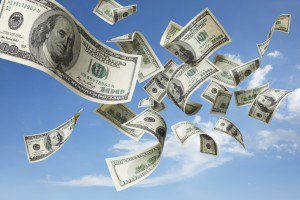We all know people who are egotistical to the point of arrogance.
They think they are always right and only their opinion matters. They always volunteer their advice and opinions to everyone else about how they should live their lives. Conversations inevitably are all about them.
But add politics into this mix and it can produce a lethal stew in which decision-making is self-centered and arrogant groupthink. The Tennessee Legislature is the case in point, and Amendment 3 is the result. It presumes that whatever financial realities that Tennesseans face in the future, they should not be allowed to have all of their options on the table.
It unilaterally bans the income tax from ever being considered no matter what.
And it does this despite Tennessee having one of the most regressive tax structures in the entire country.
If You Tell a Lie Long Enough
All in all, it makes the lies told by supporters of Amendment 3 all the more remarkable. For example, Tennessee Senator Brian Kelsey said that the amendment would be a further economic spark for the state although it’s hard to imagine why this would be the case. Interestingly, the list of states whose economies perform best year after year are dominated by high tax states.
Low tax states like Tennessee often find themselves at the bottom of the rankings for the things that drive economic growth like quality of life and education – categories in which Tennessee is ranked #49 and #45 – largely because it does not have enough revenues to make the kinds of investments that have the most important return on investments.
Mr. Kelsey relied on Tea Party talking points to say: “Not having an income tax has brought jobs into the state. We think banning it will bring more jobs in.” It defies logic, not to mention common sense, because if the lack of income tax was an economic stimulus, Tennessee’s jobs growth in modern history would be more than mediocre.
Tax Drain From High Sales Taxes
To underscore the illogic that is central to his argument for Amendment 3, he suggested that having one of the highest sales tax rates in the nation is a boon to the state economy, although there are studies by state government itself that document the considerable amount of sales taxes that are lost by Tennessee border cities from Tennesseans shopping on the other side of the state line.
By Mr. Kelsey’s economic theory, all those North Mississippians should be flocking to Memphis to make their purchases.
That said, he and other advocates of Amendment 3 have created a raft of myths about the economy, taxes, and the future, most notably that the Tennessee economy is flourishing.
Forbes magazine ranks Tennessee 40th among states prepared to compete in the New Economy, Business Insider ranks it #34 among state economies, Pew Charitable Trust ranks Tennessee #44 in jobs growth and #44 in household income, and the state’s GDP growth was among the bottom 10 in the U.S. in the most recent report by the Bureau of Economic Analysis.
Institutionalizing Politics of the Moment
It’s a sad commentary on the Tennessee Legislature that in the midst of weak trend lines for the state economy, legislators put political orthodoxy ahead of good governance by putting changes to our state constitution on the ballot with Amendments 1 and 3, which would respectively ban abortion and income tax.
Amendments to constitutions, whether state or federal, should be few and far between, but these days, Tea Partiers, who profess fealty to the principles and traditions of this country, are running roughshod over the principles of good governance. Here’s the thing: there is never any valid reason for the political orthodoxies of the moment to be written into constitutions, regardless of which political party is in the position to do it.
But that said, Amendment 3 is bad governance in the extreme. It limits future options for Tennesseans seeking to create a more equitable tax system, it ensures that state financial officials will continue to rob Peter to pay Paul, and it enshrines one of the nation’s most regressive tax systems as a Tennessee birthright.
Regressive on its Face
That’s the unequivocable conclusion to be drawn from the Tennessee Advisory Commission on Intergovernmental Relations’ report, “Who Pays More: Local Tax Burdens on Tennessee Households by County.” The report analyzed the tax burden of people in the 19 Tennessee counties with populations of more than 65,000 people.
“The highest effective property tax is found in Shelby County, reflecting the impact of an extremely high property tax rate in Memphis,” the report’s executive summary said. “Memphis has the highest combined county and city nominal tax rate in the state…Total local taxes are regressive, since each of the three taxes (property tax, sales tax and wheel tax) is separately regressive. Regressivity refers to lower income persons paying a higher percent of their income for taxes than do higher income persons.”
Here’s the report’s tale of the tape on the tax structure in Shelby County:
Families making $20,000 to $29,000 pay 5% of their incomes in taxes.
Families making $30,000 to $39,999 pay 4.7% of their incomes in taxes.
Families making $40,000 to $49,999 pay $3.2% of their incomes in taxes.
Here’s the kicker: families making $50,000 to $69,999 pay 2.8%.
Badly Flawed Tax System
While local efforts to expand tax sources are well-intended, in the end, the current tax structure is so badly flawed that even new sources are just stopgap solutions that don’t address the fundamental flaws in the system.
TACIR spotlighted this reality with its reliance on the District of Columbia report – “Tax Rates and Tax Burdens in the District of Columbia – A Nationwide Comparison.” It looks at the District and the largest cities in each of the 50 states. The report, which we have cited here previously, concluded that families earning $25,000 were ranked 31st in their tax burden among the 51 cities while families earning $100,000 and $150,000 were ranked 46th.
In other words, the less you earn in Tennessee, the greater percentage you pay in taxes, a fact that not only makes for poor tax policy but contributes to inequality in our state.
For perspective, consider that the 4.3% paid in Memphis for families earning $150,000 compares with the following rates, according to the D.C. study: Philadelphia, 11.1%; Providence, 11.4%; Baltimore, 10.1%; Atlanta, 10.2%; Columbus, 10.2%; Louisville, 10.0%; and Little Rock, 9.2 . “The three cities with the least progressive state and local tax systems are Las Vegas, Nevada; Sioux Falls, South Dakota; and Memphis, Tennessee,” concluded the 56-page District of Columbia report.
Voting for Amendment 3 will forever remove the option of state government even considering a more equitable, progressive tax system, or more likely, to respond smartly in the midst of a state financial catastrophe.






Why the push by state reps to reduce freedom by removing future options?
This is problem that goes back to when Don Sundquist, a Republican, was our governor. During his second term in office, he had sought to reform Tennessee’s tax code by introducing a state income tax as a means of raising revenues without relying heavily on using the sales tax to fund the government. His proposal was met with harsh criticism and protests across the state, even to a point at which members of his own party had turned against him. To this day, it is still an unpopular issue for many, even among lawmakers who refuse to even go near it anymore out of fear of the same backlash that hurt Sundquist’s legacy as governor in the end.
As with most things Kelsey does, this is a solution in search of a problem. Because of that Sunquist history, the chances of an income tax being passed here are slim to none in the foreseeable future. But perhaps in the not so foreseeable future the voters may decide an income tax is necessary. This basically prevents it for no good reason. The idea that banning it will cause business to come here is absurd
Anon-
Agreed! Kelsey is not the most intelligent of individuals. Otherwise he would realize that the local economic story has been dominated in recent years by numerous situations where businesses and their associated employment have in fact departed Tennessee for Mississippi which is confounding seeing as the latter does in fact have an income tax.